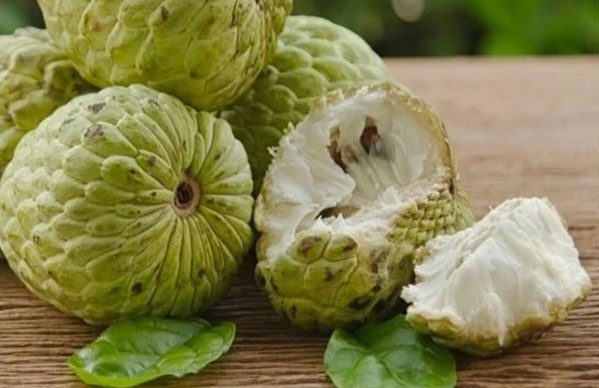Brazil is
renowned for its rich culinary heritage, lush tropical fruits, and vibrant
culture. One such exotic fruit that has captured the hearts of many in Brazil
is the Sugar Apple. Known locally as “Fruta-do-conde” or
“Ata,” this delectable fruit is celebrated for its unique flavor,
versatility, and numerous health benefits. In this blog post, we’ll explore the
tropical delight of Sugar Apple in Brazil, delving into its flavors, cultural
significance, and its place in Brazilian cuisine.
The Sugar
Apple: A Tropical Treasure
Flavor and
Texture
The Sugar
Apple is a small, green, heart-shaped fruit with a scaly, bumpy skin. It is
often described as a cross between a pear and a pineapple, with a sweet,
custard-like flesh. Its flavor is a harmonious blend of tropical notes, making
it a delightful treat.
Nutrient-Rich
Goodness
Sugar
Apples are not just delicious; they’re also packed with nutrients. They are a
good source of dietary fiber, vitamin C, vitamin B6, and essential minerals
like potassium and magnesium. The fruit’s fiber content can aid in digestion,
while its vitamins and minerals support overall health.
Cultural Significance
Popular Dessert Ingredient
Sugar
Apples are frequently used in Brazilian desserts and sweets. They add a unique
sweetness and tropical flair to dishes like mousses, ice creams, and tarts.
You’ll often find them in the iconic “sorvete de graviola,” a
delicious sugar apple ice cream.
Fruit of
Celebration
In many
regions of Brazil, Sugar Apples are associated with celebrations and festivals.
They are often featured in traditional Brazilian sweets during festive
occasions, symbolizing the joy and abundance of the season.
Health
Benefits
Digestive
Health
The dietary
fiber in Sugar Apples can aid in digestive health by promoting regular bowel
movements and preventing constipation.
Immune
Support
The fruit’s
vitamin C content contributes to immune system support and overall health.
Hydration
and Heart Health
The
potassium in Sugar Apples helps regulate blood pressure and contributes to
heart health. The fruit’s high water content also aids in hydration.
How to
Enjoy Sugar Apples
Fresh and
Simple: Enjoy Sugar Apples by scooping out the creamy flesh with a spoon and
savoring them fresh.
Desserts:
Add them to desserts like puddings, sorbets, or fruit salads.
Beverages:
Blend Sugar Apples with other fruits to create refreshing tropical smoothies
and juices.
Savory
Dishes: In some regions, Sugar Apples are used in savory dishes, adding a
unique touch to salads or salsas.
Conclusion
The Sugar
Apple is a tropical delight that holds a special place in Brazilian culture and
cuisine. Its sweet, custard-like flesh, nutrient-rich profile, and cultural
significance make it a true treasure. Whether enjoyed fresh, in desserts, or
blended into refreshing beverages, Sugar Apples add a touch of the tropics to
every bite. In Brazil, they symbolize the beauty and abundance of the nation’s
tropical landscape, creating a unique and delectable connection between people
and the land.






